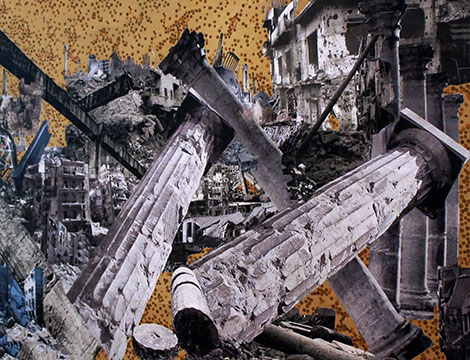
This article was originally published by IPI Global Observatory on 18 May 2017.
The low global oil prices being experienced since mid-2014 have had a serious impact on oil-dependent states across the world, many of which have a limited capacity to adjust to the current economic climate. Algeria is considered particularly vulnerable in North Africa, with fears of a return to the instability of the late 1980s and a diminished ability to respond to the region’s fragile security environment.
The steep decline in oil prices has caused budget deficits even in the wealthiest Gulf states, including Saudi Arabia. Yet these states generally have very large foreign currency reserves and sizable sovereign wealth funds that should help them weather the current slump comparatively well. Though not as poorly placed as some sub-Saharan oil-producers such as Nigeria, Algeria lacks such a significant cushion.
Oil and gas account for 95% of Algerian exports and some 60% of government revenues. A 1986 oil price shock necessitated austerity measures including severe cuts to core subsidies for health, education, and housing, which hit the lower and middle classes hard and contributed to a popular and bloody uprising in October 1988. Social unrest at that time fueled the rise of Islamists, who, in the face of subsequent repression, went on to wage a decade-long insurgency against the government.
Understandably, the current government is reluctant to make such drastic cuts to public spending for fear of generating widespread discontent. As well as public subsidies, it has maintained defense expenditure in response to the country’s struggle with transnational terrorism and regional instability (the military is also a key stakeholder in the regime). The government has, nevertheless, adopted some measures in its 2017 budget that could create stresses. This includes increasing the rate of value-added taxes, which will be felt by the lower and middle classes in the form of cost of living increases.
Estimates suggest that the government can continue to fund core subsidies for another four years or so—until a little after the end of President Abdelaziz Bouteflika’s current term, in 2019, through withdrawals from its foreign reserves. While these reserves are substantial, they have been declining since 2013. In addition, Algeria’s sovereign wealth fund is rather limited in size. This means the government will most likely have to borrow more money until it can make up the shortfall in revenues if and when oil prices rise again. A low existing external debt make this a feasible, if not ideal, option.
If the oil price remains low for some time, as expected, the government will need to find more permanent solutions such as increased oil production or exploitation of shale gas resources. Yet these, too, are difficult options to pursue. A lack of investment in infrastructure and technology has seen new oil projects repeatedly delayed, while the large volumes of water required for fracking of shale gas—of which Algeria is believed to have the world’s third largest resources—is in short supply.
Past efforts to divert water from agricultural use to shale development have met with strong resistance; protests erupted in 2015 in Ain-Salah, before spreading to other parts of the country’s Sahara region. The government thus faces something of a conundrum in this respect: There is a threat of more protests should it try to increase shale gas development as a means of making up for the oil revenue shortfall, yet it also faces social upheaval should it not respond to the oil shortfall and its diminished ability to finance generous subsidies.
Although Algeria appeared to buck the trend of uprisings sweeping across the Arab region in 2010-11 and is perceived as a bastion of relative stability, it has seen a proliferation of small-scale social protests in recent years. These result from a lack of other channels of political engagement for the majority of ordinary citizens, with the government accused of shortcomings such as inadequately representing the people and lacking a commitment to social dialogue, despite limited political reforms in 2016.
So far, these protests have tended to be localized and easily manageable for the government, yet could increase if growing fiscal pressure compromises its ability to maintain legitimacy, particularly among the struggling middle class. Larger and more broad-based protests would also coincide with uncertainties generated by Bouteflika’s succession process, which is expected to occur in two years’ time.
Domestic political instability, especially if combined with eventual cuts to the defense budget, could in turn compromise Algeria’s ability to insulate against turmoil and violent extremism in neighboring countries. Its vulnerability in this respect was demonstrated in January 2013, when an offshoot of al-Qaeda in the Islamic Maghreb seized the Tingantourine gas facility, taking 800 workers hostage. The perpetrators were thought to have entered Algeria from Libya. Further regional instability in Libya, Mali, and Tunisia could have major ramifications for the government in Algiers. Growing Algerian insecurity could in turn concern key international partners such as the United States and Europe, which has looked to the country as a regional bulwark in recent years.
About the Author
Lisa Watanabe is a Senior Researcher at the Center for Security Studies at ETH Zurich.
For more information on issues and events that shape our world, please visit our CSS Security Watch Series or browse our Publications.

